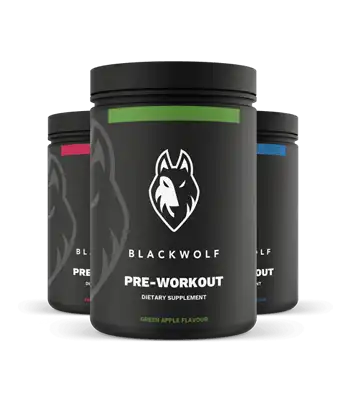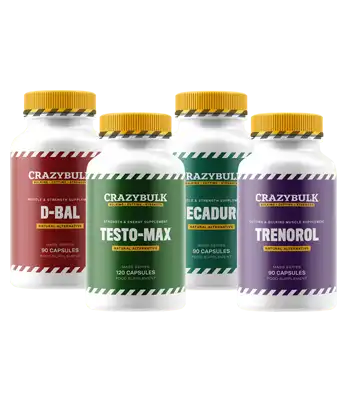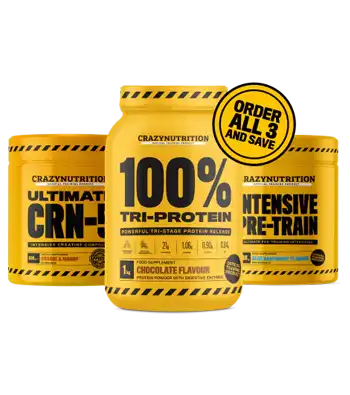Introduction
For centuries, herbs from nature have improved our health. While a balanced lifestyle is key, herbal supplements can boost our energy and mind. Maintaining a healthy body weight and practicing self-care are the primary factors for feeling your best. Nothing beats natural herbs for improving both your energy and brainpower. They’re known to work well in these aspects.
Herbs have been used across various cultures for their medicinal properties. They offer a natural and overall approach to health. They provide valuable nutrients and compounds that can complement a balanced diet and lifestyle.
When it comes to energy, some herbs are known for their revitalizing effects. These herbs may help fight tiredness and provide a gentle boost of energy. This is how they support individuals in their daily activities and responsibilities.
What are Their Traditional Uses?
Herbs are still in use for medicinal purposes even after thousands of years, and they are still used today to promote health and well-being. People have been using herbal medicines for a long time to stay healthy and treat long-lasting health problems that are not very dangerous.
The use of herbs is a core part of all systems of traditional medicine. Herbal medicine aims to return the body to a state of natural balance so that it can heal itself. Different herbs act on different systems of the body. To understand better, take a look at the science behind herbs.
What is the science behind the health benefits of Herbs?
- Phytochemicals – Herbs contain powerful plant compounds called phytochemicals. They act as antioxidants, and anti-inflammatories and help fight diseases. Examples include curcumin in turmeric, allicin in garlic, and gingerol in ginger.
- Traditional medicine validation – Herbal remedies have stood the test of time in traditional medicine systems. Modern science is now validating many of these traditional uses through clinical trials and studies.
- Multi-target effects – Unlike synthetic drugs that target single receptors, phytochemicals in herbs can have multi-target effects on body pathways related to disease. This makes them holistic for overall health support.
- Synergistic compounds -Herbs have many different natural chemicals in them. These chemicals work together to make the herbs more powerful for healing than if we use just one chemical by itself. So, using the whole herb is usually better for you.
- Cell signaling modulation – Herbal compounds are found to positively modulate cell signaling pathways involved in inflammation, oxidative stress, etc. helping maintain optimal cellular function.
- Gene expression regulation -Some herbs and their parts can change how genes work, which is connected to long-lasting illnesses.
In this blog, we are going to discuss the wonderful world of herbs, focusing on three incredibly useful ones: Turmeric, Ginger, and Chamomile. These herbs aren’t just flavorful additions to your pantry but also offer a wealth of health benefits. Let’s see how.
What is Turmeric?
Turmeric is a plant that belongs to the family Zingiberaceae and is native to tropical South Asia. The plant makes a special root called a rhizome, which is the part used for medicinal purposes and as a spice. Turmeric is still in use even after thousands of years in traditional medicine. It is helpful to treat a variety of conditions, including inflammation, pain, and liver function.
The bright yellow color of turmeric comes from the active ingredient curcumin, which is full of powerful biological properties. Turmeric is a spice used in Asian cooking. It adds a strong, earthy smell and a slightly bitter taste to dishes, similar to mustard.
Health Benefits:
Turmeric has strong anti-inflammatory properties due to its active compound curcumin. Curcumin is a powerful antioxidant that can help reduce inflammation in the body. Chronic inflammation is linked to many serious health conditions like heart disease, cancer, arthritis, Alzheimer’s, etc.
By combating inflammation at the cellular level, turmeric may help protect the body from developing these inflammatory diseases. Some of the key benefits it provides are:
- Heart disease: Inflammation plays a major role in atherosclerosis and heart attacks. Studies show turmeric may help lower inflammation and reduce the risk of heart attacks and stroke by preventing platelet aggregation. Its lipid-lowering effect further aids heart health.
- Cancer: Chronic inflammation increases the risk of cancer. Curcumin is found to help fight cancer as its anti-inflammatory action stops tumor growth and kills cancer cells. Research suggests it may help prevent cancers of the breast, prostate, lung, skin, and other organs.
- Arthritis: The anti-inflammatory compounds in turmeric effectively reduce joint swelling, stiffness, and pain associated with arthritis. Therefore, research suggests it provides natural relief from osteoarthritis and rheumatoid arthritis symptoms.
- Alzheimer’s: Research found the effectiveness of a curcumin treatment for neurological diseases. Inflammation and oxidative stress damage brain cells are linked to Alzheimer’s. Curcumin crosses the blood-brain barrier and may help reduce plaque formation and the risk of Alzheimer’s by lowering inflammation in the brain.
How to incorporate turmeric into your diet.
Turmeric is a versatile spice that not only enhances the flavor of your dishes but also provides various health benefits. The recommended daily amount is 1/4 to 1/2 tsp of turmeric powder. For medicinal benefits to see effects on conditions like arthritis, consume 1/2-1 tsp per day, either from food or supplements. Start with smaller amounts and gradually increase based on your individual tolerance
- Golden milk: Add 1/2 tsp turmeric to warm milk and drink it daily. It’s easily absorbed by the body.
- Turmeric tea: Brew turmeric tea by adding 1/4 tsp turmeric to hot water along with black pepper, ginger, and honey. Drink 1-2 cups per day.
- Turmeric smoothie: Blend 1/2 tsp turmeric with fruits, yogurt, and plant milk for a colorful, flavorful smoothie.
- Turmeric rice: Mix 1/4-1/2 tsp turmeric while cooking rice, pilaf, or other grain dishes.
- Turmeric veggies: Roast or sauté veggies like cauliflower, and broccoli with 1/4 tsp turmeric.
- Turmeric chicken/fish: Use 1/4-1/2 tsp turmeric while baking, grilling or stewing chicken, fish, or other meats.
- Supplements: For concentrated benefits, take 400-600mg turmeric supplements twice a day, best taken with black pepper and a meal.
What is Ginger?
Ginger, native to Southeast Asia, is a versatile herb with a long history of medicinal use. It contains active compounds like gingerols, known for their health benefits. You can easily find ginger in various forms, from fresh to powdered, and use it in cooking, teas, or supplements. It supports digestion, reduces pain and inflammation, and eases nausea. Ginger adds flavor and wellness to your meals, making it a valuable addition to your kitchen.
Health Benefits
Let’s take a look at the amazing health benefits of Ginger.
Digestive Benefits:
Ginger contains gingerol, a bioactive compound with potent anti-inflammatory and antispasmodic properties. This makes it very effective in treating digestive issues.
It helps relieve nausea and prevents and treats vomiting. There is research that suggests ginger is often used as a natural remedy and is very helpful for stomach problems.
Ginger aids in digestion by stimulating enzyme secretions in the stomach and intestines. This helps break down food faster. It helps relieve gas, bloating, abdominal pain, and cramping associated with conditions like IBS, ulcers, and indigestion.
Pain Relief:
Gingerols have strong analgesic and anti-inflammatory effects. They are just as effective as painkillers in reducing mild to moderate pain.
It has been found that ginger is effective in reducing muscle pain, arthritis pain, joint pain, back pain, and migraines when consumed regularly.
Nausea Relief:
Research suggests ginger is one of the best home remedies for nausea, especially during pregnancy or due to motion sickness, chemotherapy, and post-surgery.
It crosses the blood-brain barrier and blocks serotonin receptors in the gut and brain that trigger nausea and vomiting.
How to use ginger fresh, dried, or powdered
Ginger is an amazing spice that you can add to your day-to-day cooking. Let’s cover versatile ways to get ginger in your daily diet for its flavor and health benefits. Here are some ways to incorporate ginger into your diet using fresh, dried, or powdered ginger:
Fresh Ginger:
You can grate or slice fresh ginger and add it to stir-fries, curries, soups, or marinades. It’s also great in smoothies, juices, or even ginger ale. If you like, you can simply eat slices of fresh ginger as a snack, or grate it over dishes like rice, noodles, or vegetables.
Dried Ginger:
For dried ginger, you can make a soothing tea by steeping sliced dried ginger in hot water. It’s also perfect for baked goods like cookies, muffins, or bread. Crushed dried ginger can be added to your cooking, including curries, soups, or marinades. And if you have powdered dried ginger, you can use it just like fresh ginger in your recipes.
Ground Ginger Powder:
Ground ginger powder is versatile too. You can add a quarter teaspoon to warm milk or water and enjoy it as a tea. For baked goods, desserts, or gingerbread, half a teaspoon of ground ginger works well. It’s also good for sprinkling on top of noodles, rice dishes, or stir-fries. And if you like drinks, add half a teaspoon to smoothies, cocktails, or hot toddies. For marinades and salad dressings, one teaspoon of ginger powder is a great choice.
Ginger Supplements:
If you prefer supplements, you can take 250-500mg capsules up to three times a day between meals. Look for certified organic or high-quality brands for the best results.
Chamomile
Chamomile is a popular herb known for its calming properties. It belongs to the daisy family and comes in two main varieties – German and Roman chamomile. The flowers and leaves contain antioxidants like apigenin and volatile oils that reduce inflammation and induce relaxation. Chamomile tea is commonly consumed for its ability to soothe anxiety and aid sleep. Many scientific studies have shown that chamomile has special properties. It can help fight cancer, reduce pain, protect your brain and heart, and fight germs. Chamomile is generally safe to use as a natural remedy for stress relief and gut health.
Health Benefits
Here are some key health benefits of chamomile herb:
- Relaxation and stress relief – Research suggests the use of chamomile for relieving stress, depression, and anxiety. Chamomile has apigenin and flavonoids. These can connect with receptors in your brain, kind of like switches, that help you relax and feel less stressed or anxious.
- Improved sleep – There was research for elderly people that suggests Chamomile is good for sleep. Its mild sedative properties help promote better sleep when consumed before bedtime as a tea or supplement.
- Anti-inflammatory – Chamomile has anti-inflammatory effects due to bisabolol compounds, helping reduce inflammation in the body linked to various diseases.
- Digestive aid – It soothes stomach cramps, acidity, bloating, and gas and promotes digestion due to antispasmodic compounds that relax the gut. Research on Chamomile suggests it helps digestion as it can slow down the enzymes in your body that are responsible for releasing sugar during digestion.
- Skincare – Applied topically, it helps treat skin conditions like eczema, psoriasis, wounds, and acne due to anti-inflammatory and antibacterial properties.
Chamomile’s relaxing, anti-inflammatory, and antimicrobial properties give it wide-ranging benefits for stress, sleep, digestion, skin, and overall wellness.
How to incorporate Chamomile into your diet.
Chamomile is an amazing herb that provides a calming and soothing effect. Here are some ways you should add them to your diet.
- Chamomile tea – Steep 1-2 tsp dried flowers or 1 tea bag in hot water for 5-10 mins. Drink 1-3 cups per day. Add honey for taste.
- Chamomile-infused water – Add fresh or dried flowers to a pitcher of water and refrigerate overnight. Drink this infused water daily.
- Chamomile essential oil– Chamomile essential oil for aroma therapy is also an amazing option if you don’t want to consume it. Just 2-3 drops and you are good to go.
- Chamomile supplements – Take 250-500mg capsules or 1⁄2-1 tsp tincture up to twice daily as needed for relaxation.
- Chamomile skin products – Look for creams and lotions containing chamomile extract for the skin.
In a Nutshell,
Turmeric, ginger, and chamomile are three incredibly powerful herbs that have been used for centuries to boost health and wellness. Modern science has now validated their traditional medicinal uses by confirming the presence of active anti-inflammatory, antioxidant and disease-fighting compounds in each herb.
Whether consumed as tea, supplements, or added to meals, these herbs can offer a natural and effective approach to supporting overall health. From reducing chronic inflammation linked to many diseases to aiding digestion, and relieving pain and stress, they provide holistic benefits for both prevention and management of illnesses.
While no herb is a substitute for medical treatment, incorporating them regularly as part of a healthy lifestyle through simple diet and lifestyle changes can go a long way in boosting immunity, resilience, and quality of life.








